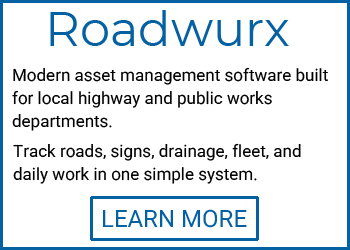The Role of a Town Board Member: Powers, Limits, and Responsibilities
Serving as a town board member is an honor, and a serious responsibility. Board members are entrusted with the power to shape the future of their community, but that power must be exercised carefully, within legal and ethical limits, and with a deep sense of duty to the people they serve.

When residents elect a town board member, they place a great deal of trust in that individual to help guide the community forward. Yet, for many new officials, and even longtime residents, the true scope of a board member’s role can be a little unclear. It’s about more than just attending meetings and voting. Town board members have a critical balance of powers, limits, and responsibilities that require thoughtful leadership and steady collaboration.
Here’s a clear look at what it really means to serve on a town board:
The Powers of a Town Board Member
Town board members are part of the legislative branch of local government. Their primary powers include:
-
Passing Local Laws and Ordinances: Board members help create, amend, or repeal town laws that affect everything from zoning regulations to noise ordinances to road maintenance standards.
-
Budget Oversight: They approve the annual town budget, setting priorities for spending on departments like highway, public safety, parks, and administration.
-
Appointing Officials and Staff: In many towns, the board plays a role in appointing members to planning boards, zoning boards, assessment review panels, and sometimes department heads (depending on local laws).
-
Setting Policy Direction: Board members guide the town’s overall strategic direction through resolutions, policies, and planning initiatives.
In short, town board members are decision-makers and policymakers.
The Limits of a Town Board Member’s Authority
While the powers are significant, they are not unlimited. Some key limits include:
-
No Day-to-Day Department Control: Board members should not micromanage or direct the daily operations of departments like the highway or clerk’s office. Department heads are typically elected or appointed to handle operations independently.
-
Shared Authority: Individual board members hold no special power outside of board meetings. Action is taken by majority vote of the full board, not by individual members acting alone.
-
Legal and Ethical Boundaries: Board members must operate within the confines of state law, town law, ethics rules, and open meeting laws. Personal agendas cannot override legal obligations.
-
Financial Oversight, Not Hands-On Management: The board approves budgets and expenditures but does not cut individual department purchase orders or negotiate vendor contracts (unless specifically empowered).
Understanding these boundaries protects both the board member and the town from conflict, inefficiency, and even legal liability.
The Responsibilities of a Town Board Member
Board members are expected to approach their role with diligence, integrity, and transparency. Core responsibilities include:
-
Participating in Meetings: Regular attendance at board meetings, budget workshops, and public hearings is a must. Preparation and active engagement are essential.
-
Listening to Residents: Constituents should feel heard. Good board members take time to listen respectfully to public input - even if they ultimately disagree.
-
Doing Their Homework: It’s critical to review meeting agendas, proposed laws, budget documents, and reports in advance to make informed decisions.
-
Working as a Team: Governing requires collaboration. Personal differences must be set aside in favor of acting in the town’s best interest.
-
Protecting Public Trust: Board members must avoid conflicts of interest, follow transparency rules, and model professionalism in all dealings.
Serving as a town board member is an honor, and a serious responsibility. Board members are entrusted with the power to shape the future of their community, but that power must be exercised carefully, within legal and ethical limits, and with a deep sense of duty to the people they serve.
True leadership on a town board isn’t about rushing to control; it’s about listening, learning, and leading with wisdom and respect.



















